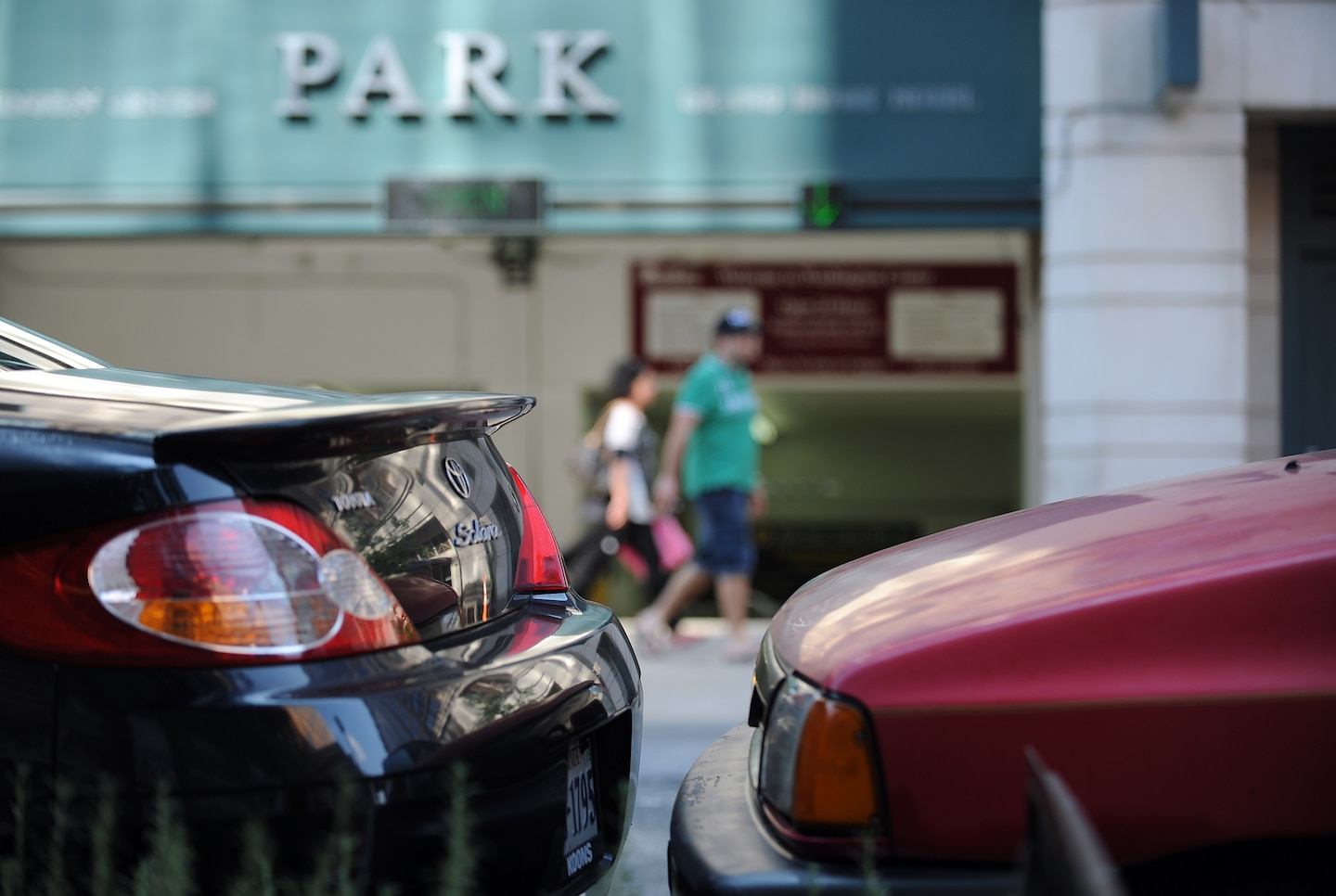The high cost of D.C.’s cheap parking

In essence, the city deeply subsidizes residential on-street parking. Normally we only subsidize goods that we want to encourage or that have spillover effects that benefit others. Do people without cars benefit from this subsidy?
The answer is no. In fact, this implicit subsidy to wealthy car owners imposes a high cost on pedestrians, cyclists, people who ride buses and drivers, while driving up housing costs in neighborhoods.
The biggest problem with cheap parking permits is that we have many more permitted cars than there are spaces to park, so competition for space is keen. Car owners put pressure on the D.C. Department of Transportation, Advisory Neighborhood Commissions and the D.C. Council to allow parking on every possible inch of curb space. These organizations tend to acquiesce, but it can’t erase excess demand at that low price.
This munificence is costly to the rest of us. First, the ubiquity of parked cars slows down buses. For example, the L2 from Woodley Park to Farragut has five stops where a handful of parked cars can delay the bus by one to two minutes. The result is that thousands of bus riders lose five to seven minutes each day (and that’s one way) to accommodate 20 to 25 car owners. Almost all of these spots are near parking garages.
Excess demand for street parking also causes car owners to spend a lot of time looking for parking, which increases rush-hour congestion and pollution while making life more dangerous for pedestrians. University of California at Los Angeles economist Donald Shoup estimates that 30 to 70 percent of traffic in dense residential neighborhoods consists of drivers looking for parking, depending on the time of day.
Nearly free car storage also engenders opposition to new housing: The people who organize to oppose virtually each and every new residential development in my neighborhood for failing to fit the character of the neighborhood or bringing more people to the community and “straining services” are primarily motivated by their fear of more competition for scarce on-street parking. This activism invariably causes virtually every new development in the neighborhood to be scaled down.
Although it is rarely acknowledged, on-street parking scarcity dominates many neighborhood decisions. For example, Columbia Road has a stretch near Kalorama Park with three intersections within 200 feet of one another. The proximity of the intersections exacerbates congestion and pollution and makes for a dangerous intersection for pedestrians.
A proposal to remedy this while concomitantly expanding the park was nixed because some residents objected. The problem? It would eliminate eight parking spots. Pedestrian safety, carbon emissions, green space and road congestion all take a back seat to car storage.
Incidentally, multiple people have parking permits for 10 or more cars in Adams Morgan, where I live. Several vehicles parked on the street are used by their owners for storage.
The 10 feet of street next to the curb is a scarce and valuable public resource, and we provide most of it to a few car owners — who are mainly wealthy and white — for next to nothing. And the rest of us are greatly inconvenienced because of it.
The solution to this mess is elementary. First, we should eliminate parking everywhere it hinders traffic or buses. Second, the city should auction residential permits, but only as many as there are spaces, and use the money to subsidize mass transit access.
Doing these things would take away some of the tinder that foments opposition to new housing while reducing road congestion and carbon emissions. These steps would also help reduce inequality while speeding up buses. And, to top it off, it also would improve bike and pedestrian safety. That we don’t do this implies that providing nearly free on-street parking trumps these ostensibly progressive goals.
If we stick with the status quo — which we almost assuredly will — someone should explain why we adhere to a regressive policy that almost solely benefits a small group at the expense of everyone else.
Read more:






